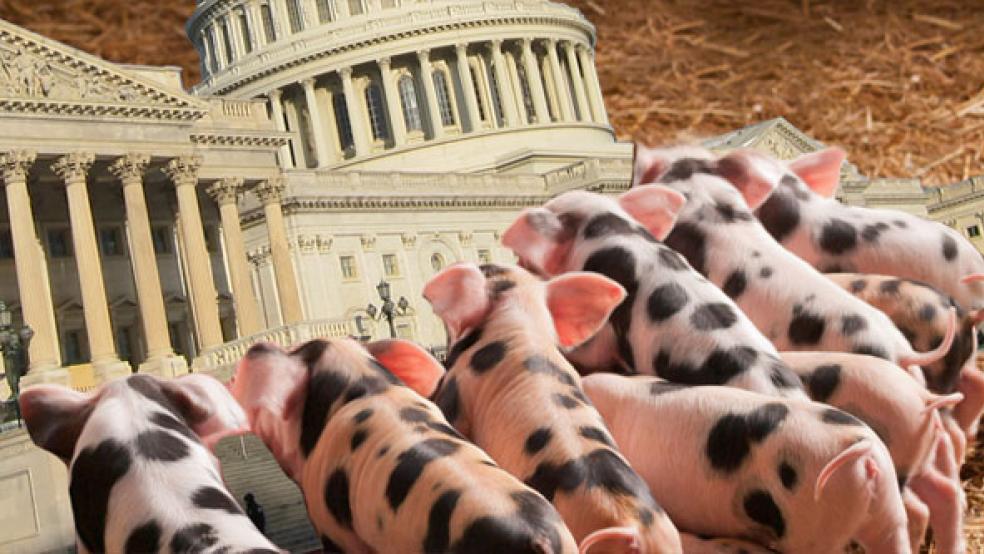Arguing that the week after the nation elected a new president who promised to “drain the swamp” in Washington wasn’t a good time to bring back pork-barrel spending, House Speaker Paul Ryan successfully delayed -- and probably killed -- an effort to bring a limited form of directed spending back into the appropriations process.
Known as “earmarks,” directed spending was banned in 2010 after Republicans took over the House of Representatives. The practice allowed individual lawmakers to add provisions to spending bills specifically directing money to projects in their home states and districts.
Related: Are Republicans Opening the Door to More Pork Barrel Spending?
While many lawmakers, then and now, defended the practice as a means of allowing the federal officials most in touch with the needs of a local population to help address them, earmarks were often criticized as wasteful and corrupt, with lawmakers using them to reward donors and allies. Many lawmakers have also pointed out that the ability to punish and reward lawmakers by withholding and granting earmarks was a powerful tool for Congressional leaders, and that its loss has contributed to the dysfunction on Capitol Hill.
On Wednesday, the House was expected to vote on a package of rules that included an amendment sponsored by three Republican members: John Culberson of Texas, Mike Rogers of Alabama and Tom Rooney of Florida. It would have allowed members of Congress to direct funding through a limited set of federal agencies, including the Defense Department, the Army Corps of Engineers and the Department of Homeland Security. State and local governments could also receive directed funds. However, it would bar the use of public funds for recreation facilities, parks and other projects.
The proposal was bitterly opposed by conservative groups, with Heritage Action for America taking the lead. Calling earmarks “the lubricant that empowers politicians to cut bad deals,” Heritage Action CEO Michael Needham said, “Americans deserve an honest, transparent government that is working for everyone, not simply doling out favors to a well-connected few.”
However, because the vote Wednesday was to have been conducted by secret ballot, members would have enjoyed considerable insulation from the anger of groups like Needham’s.
Related: Who’s Going to Pay for Trump’s Huge Infrastructure Plans?
However, according to reports Wednesday evening, Ryan convinced his members that the choosing the week after the election in which voters handed all executive and legislative power in the federal government to the GOP to reinstate a controversial practice associated with corruption was not a wise choice.
Instead, Republicans agreed to address the question through the Committee process, meaning that the earmarks ban will be debated, and if there is still a proposal to lift it, it will receive a vote on the House floor sometime in early 2017. The change from a secret ballot to a floor vote greatly complicates the effort to remove the ban, because groups like Heritage, which keep running scores of how lawmakers vote on what they consider to be their key issues, will inevitably highlight it.
“The speaker was very clear: This process was abused for a very long period of time,” said Majority Whip Steve Scalise. “We need to reform the entire way that unelected bureaucrats control taxpayer dollars.”
Even if the earmark ban were to be lifted in the House, it’s far from clear that the Senate would cooperate. Also on Wednesday, the Senate GOP’s second-ranking figure, Majority Whip John Cornyn of Texas, said, “I don’t think a change in the Senate’s conference rules is in the offing, so I expect the ban to continue.”





